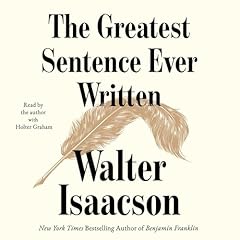
Being Wrong
Adventures in the Margin of Error
No se pudo agregar al carrito
Add to Cart failed.
Error al Agregar a Lista de Deseos.
Error al eliminar de la lista de deseos.
Error al añadir a tu biblioteca
Error al seguir el podcast
Error al dejar de seguir el podcast
 Exclusivo para miembros Prime: ¿Nuevo en Audible? Obtén 2 audiolibros gratis con tu prueba.
Exclusivo para miembros Prime: ¿Nuevo en Audible? Obtén 2 audiolibros gratis con tu prueba.Compra ahora por $29.69
-
Narrado por:
-
Mia Barron
-
De:
-
Kathryn Schulz
“Both wise and clever, full of fun and surprise about a topic so central to our lives that we almost never even think about it.”
—Bill McKibben, author of Earth: Making a Life on a Tough New Planet
In the tradition of The Wisdom of Crowds and Predictably Irrational comes Being Wrong, an illuminating exploration of what it means to be in error, and why homo sapiens tend to tacitly assume (or loudly insist) that they are right about most everything. Kathryn Schulz, editor of Grist magazine, argues that error is the fundamental human condition and should be celebrated as such. Guiding the reader through the history and psychology of error, from Socrates to Alan Greenspan, Being Wrong will change the way you perceive screw-ups, both of the mammoth and daily variety, forever.
Los oyentes también disfrutaron:




















Las personas que vieron esto también vieron:


















Another problem with the book is that it's too abstract and philosophical to be of much practical use. (To be fair, Schulz admits up front that she did not set out to write a self-help book on how to avoid error). Overall, I would recommend two other books over "Being Wrong". Check out, "Wrong: Why Experts Keep Failing Us--and How to Know When not to Trust Them", by David Friedman; and "Mistakes Were Made (But Not by Me): Why We Justify Foolish Beliefs, Bad Decisions, and Hurtful Acts" by Carol Tavris and Elliot Aronson. Either of these (or both!) would be a better choice over Schulz's book.
Interesting but too long and too abstract
Se ha producido un error. Vuelve a intentarlo dentro de unos minutos.
Everyone in the world should read this book
Se ha producido un error. Vuelve a intentarlo dentro de unos minutos.
A really great exploration of discovering error
Se ha producido un error. Vuelve a intentarlo dentro de unos minutos.
To err is human. To resist this is also human.
Se ha producido un error. Vuelve a intentarlo dentro de unos minutos.
Anyone who doesn't like this book is, well...wrong
Se ha producido un error. Vuelve a intentarlo dentro de unos minutos.


